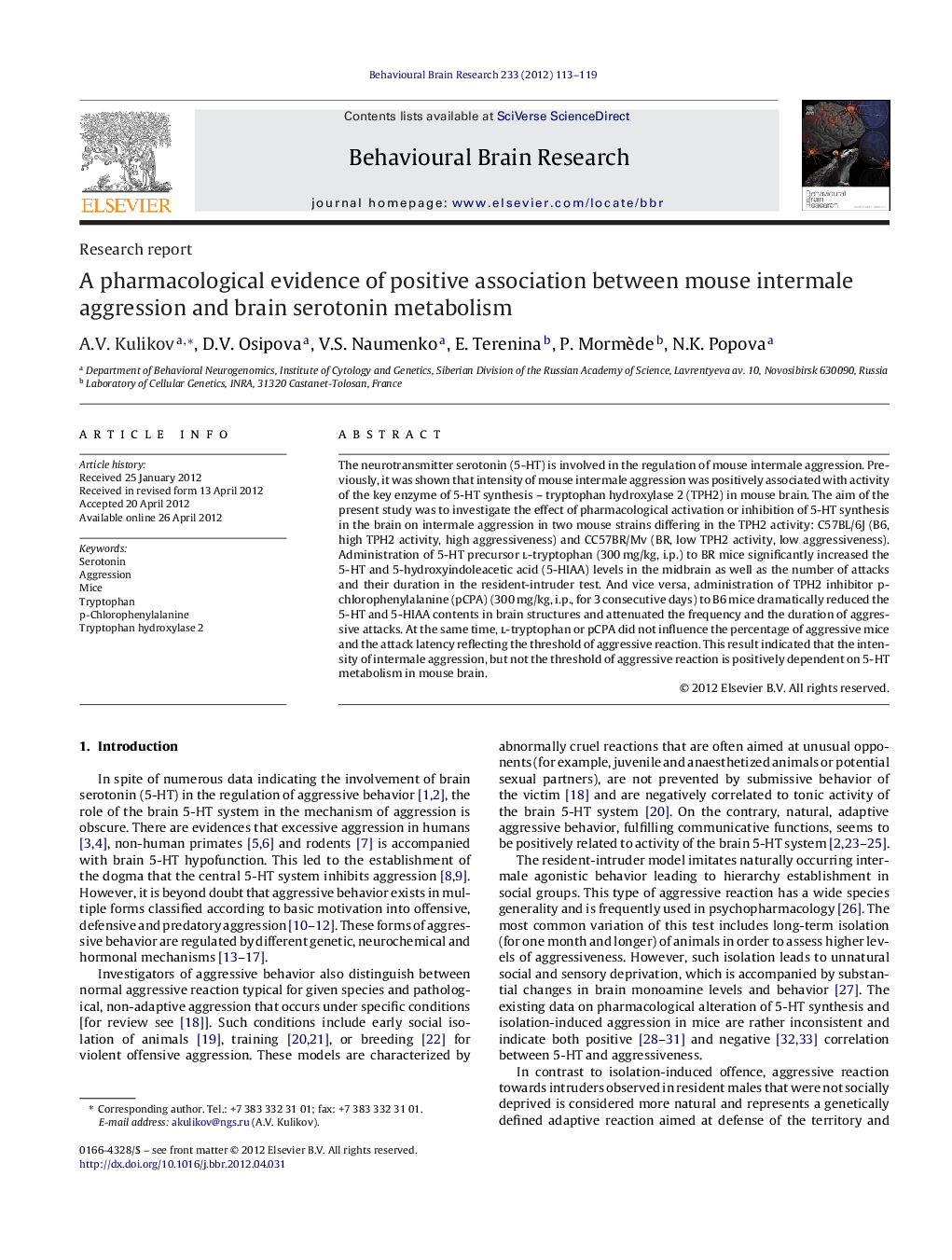| Article ID | Journal | Published Year | Pages | File Type |
|---|---|---|---|---|
| 4313187 | Behavioural Brain Research | 2012 | 7 Pages |
The neurotransmitter serotonin (5-HT) is involved in the regulation of mouse intermale aggression. Previously, it was shown that intensity of mouse intermale aggression was positively associated with activity of the key enzyme of 5-HT synthesis – tryptophan hydroxylase 2 (TPH2) in mouse brain. The aim of the present study was to investigate the effect of pharmacological activation or inhibition of 5-HT synthesis in the brain on intermale aggression in two mouse strains differing in the TPH2 activity: C57BL/6J (B6, high TPH2 activity, high aggressiveness) and CC57BR/Mv (BR, low TPH2 activity, low aggressiveness). Administration of 5-HT precursor l-tryptophan (300 mg/kg, i.p.) to BR mice significantly increased the 5-HT and 5-hydroxyindoleacetic acid (5-HIAA) levels in the midbrain as well as the number of attacks and their duration in the resident-intruder test. And vice versa, administration of TPH2 inhibitor p-chlorophenylalanine (pCPA) (300 mg/kg, i.p., for 3 consecutive days) to B6 mice dramatically reduced the 5-HT and 5-HIAA contents in brain structures and attenuated the frequency and the duration of aggressive attacks. At the same time, l-tryptophan or pCPA did not influence the percentage of aggressive mice and the attack latency reflecting the threshold of aggressive reaction. This result indicated that the intensity of intermale aggression, but not the threshold of aggressive reaction is positively dependent on 5-HT metabolism in mouse brain.
► Alteration of 5-HT synthesis in mouse strains with low and high intermale aggression. ► Tryptophan increased 5-HT metabolism and aggression in CC57BR mice (low aggression). ► pCPA decreased 5-HT metabolism and aggression in C57BL/6J mice (high aggression). ► Intensity of intermale aggression is positively dependent on brain 5-HT metabolism.
